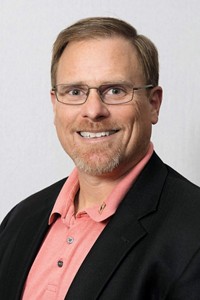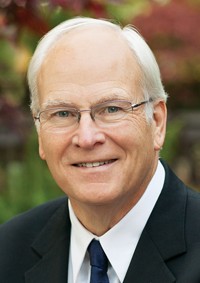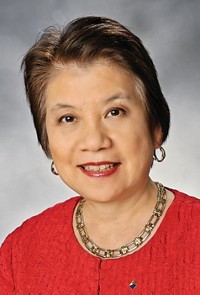Advertisement
Grab your lab coat. Let's get started
Welcome!
Welcome!
Create an account below to get 6 C&EN articles per month, receive newsletters and more - all free.
It seems this is your first time logging in online. Please enter the following information to continue.
As an ACS member you automatically get access to this site. All we need is few more details to create your reading experience.
Not you? Sign in with a different account.
Not you? Sign in with a different account.
ERROR 1
ERROR 1
ERROR 2
ERROR 2
ERROR 2
ERROR 2
ERROR 2
Password and Confirm password must match.
If you have an ACS member number, please enter it here so we can link this account to your membership. (optional)
ERROR 2
ACS values your privacy. By submitting your information, you are gaining access to C&EN and subscribing to our weekly newsletter. We use the information you provide to make your reading experience better, and we will never sell your data to third party members.
Policy
Ambassadors For Science, Technology & Education In The 21st Century
by Marinda Li Wu, Director-at-Large
August 6, 2007
| A version of this story appeared in
Volume 85, Issue 32

As a candidate for ACS director-at-large, I used "Ambassador for Chemistry" as my campaign slogan. I thank those who helped elect me. Now that I am on the ACS Board, the need to recruit not only more ambassadors for chemistry, but also ambassadors for science, technology, and education, is more apparent than ever. ACS faces many challenges in the 21st century and ambassadors can help.
My teenage son does not fully understand why I would want to work so hard on the ACS Board as a volunteer, but I explain that I am working on causes that are important to me and that I want to make a difference serving our society and profession. For years, I have worked to improve science education at all levels, enhance the public image of chemistry, combat chemophobia and negative misperceptions, and help educate policymakers and decisionmakers.
More ambassadors for science, technology, and education are needed to contact legislators at both the state and national levels. K–12 science and math education must be improved in our public schools to maintain U.S. competitiveness in innovation. In April, I attended the ACS Legislative Summit on Capitol Hill to advocate not only for increased funding for basic research in the physical sciences, but also for K-12 science education. Nine ACS teams visited 55 congressional offices during the week that many of the innovation bills were being debated.
More than 1,000 ACS members on the Legislative Action Network (LAN) wrote to their legislators urging support of the National Science Foundation Reauthorization Act of 2007 during the week before the vote. It passed with overwhelming support thanks to help from the grassroots efforts of ACS scientists willing to contact their legislators about the importance of NSF funding. If you are not a member of LAN and would like to help with issues of importance to ACS members, please visit the Office of Legislative & Government Affairs (OLGA) page on the ACS website at chemistry.org. Becoming a member of LAN is an easy way for you to become an ambassador for science, technology, and education with your local legislators. OLGA can let you know whether your local section has a Government Affairs Committee. Please consider joining or starting a GAC if your local section does not yet have one.
Another way for ACS members to get more involved as ambassadors is to participate in education and public outreach efforts at the local level. Almost all 189 ACS local sections celebrate National Chemistry Week (NCW). This fall marks its 20th anniversary, and this year's theme, "The Many Faces of Chemistry," will be celebrated nationwide on Oct. 21–27. NCW enhances the public image of chemistry by promoting the positive contributions of chemistry to our daily lives. The ACS national meeting in Boston will have a symposium on the 20th anniversary of NCW, and you can get some new ideas for celebrating NCW at this session.
Science cafés are another way that local sections are reaching the general public. Our local section's first science café recently attracted almost 100 people from nearby communities to hear about the chemistry of chocolate. Now is the time to find out what your local section is planning and to get involved.
One of the biggest challenges we are facing is truly respecting diversity. This will be even more important as we face increasing globalization and multidisciplinarity. We may not always agree with others, but we need to learn to respect differences. The best way to achieve better understanding is through person-to-person interactions and by developing friendships. At the national meeting in Chicago, I met several dignitaries, including visitors from the Royal Society of Chemistry, Canadian Society for Chemistry, German Chemical Society, Chinese Chemical Society, and Jordanian Chemical Society. They were all excellent ambassadors for chemistry and for their countries. I gained a new appreciation and understanding of different customs through simple conversation.
As ACS becomes more global, we should reach out and look for new ways to collaborate and facilitate scientific exchange. With more than 160,000 members, ACS can make a difference if more of our members take just a few minutes each day to be better ambassadors for science, technology, and education. In our daily interactions at work and in our communities, we can help to combat chemophobia and misperceptions through short conversations with strangers. I enjoy doing that wherever I go and hope that more of our members will join this effort in public outreach and education.
As the first Asian elected to the ACS Board, I was recently invited to join the advisory board for CACS Communications for the Chinese American Chemical Society. I find this an exciting opportunity to help build bridges between ACS and not only China, but other countries around the world. I hope to be able to facilitate more collaborations and help ACS appreciate diversity more fully as we move forward in the 21st century.
My childhood dream was to become a scientist or an ambassador. I now find it exhilarating to work as an ambassador for science, technology, and education wherever I go. For more information, please visit my website at http://marindawu.googlepages.com. If you have suggestions or comments, please contact me at m.wu@acs.org and consider becoming an ambassador for science, technology, and education!
Views expressed on this page are those of the author and not necessarily those of ACS.





Join the conversation
Contact the reporter
Submit a Letter to the Editor for publication
Engage with us on Twitter